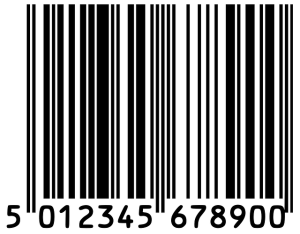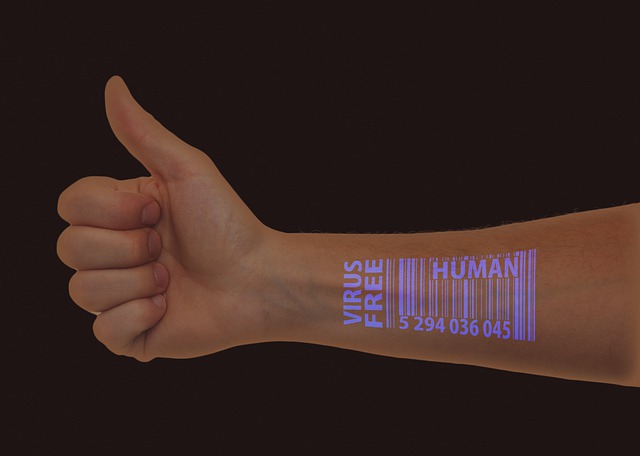Suppose you are an aspiring author, publisher, or other content creator looking to explore the publishing world. In that case, you’ve likely heard of the international standard book number (ISBN) and wondered how to get an ISBN number for free.
ISBNs are unique identifiers for books and are required by bookstores and libraries worldwide. This blog post will uncover the mystery behind ISBNs and show you how to get an ISBN for free.
What is an ISBN, and why do authors need them for their books?
An ISBN is a unique 13-digit number that identifies books by title, author, publisher, and edition. It tracks book sales, manages library inventory, and ensures accurate cataloging in libraries worldwide. Every book published commercially must have an ISBN so it can be purchased from retailers and libraries.
Where to find free ISBNs?
Many websites offer free ISBNs with no strings attached. If you are self-publishing or have a self-published book, you can get a free ISBN from various online sources.
Many countries have their own ISBN agencies offering free ISBNs. It’s important to check which agency applies to you before applying for an ISBN.
Here are a few popular places:
– The International DOI Foundation (IDF) provides authors with free ISBNs valid for five years.
– The US ISBN Agency (USISBN) also offers 10,000 free ISBNs to qualified authors each year.
– Bowker’s MyIdentifiers is a popular service that provides authors with ten free ISBNs that can be used for print and digital books without any fees.
– KDP, or Kindle Direct Publishing, is an increasingly popular source for getting a free ISBN. Many authors and publishing companies have found it convenient since KDP offers a fast and easy way for users to get their books published with minimal effort.
How to apply for a free ISBN?
Applying for a free ISBN is usually straightforward and involves filling out an online form. You must provide your contact information, book title, and author name.
After you submit the form, you should receive an email with the new ISBN. Be sure to save this information as it’s necessary for registering your book with retailers and libraries.
How to register your ISBN with the publisher?
Once you have acquired an ISBN, register it with the publisher or online distributor where you plan to publish your book. This ensures that the correct information associated with the ISBN will appear on booksellers and library sites. You can usually find instructions for registering your ISBN on the publisher’s website.
How to find a barcode for an ISBN?

The last step is to get an ISBN barcode. Online retailers and libraries require barcodes to scan books into their systems quickly.
You can usually find free barcode generators online to enter your book’s ISBN and generate a barcode. Once you have the barcode, it can be printed and affixed to your book or cover for easier scanning.
Different types of ISBNs and how they are used
ISBNs are divided into two categories: 10-digit and 13-digit. The 10-digit numbers are used for books published before 2007, while the 13-digit numbers are issued for books published after 2007.
ISBNs can be used for print and electronic editions, but you must register a separate ISBN for each format.
Tips for choosing the right type of ISBN for your book

What type of ISBN should you get for different formats?
When obtaining an ISBN for your book, it’s important to determine the correct type of ISBN that should be associated with the particular format. Types of ISBNs include an International Standard Book Number (ISBN), a Digital Object Identifier (DOI), and a Universal Product Code (UPC).
– The International Standard Book Number (ISBN) is the most common type of ISBN used and is typically associated with printed books. It is a 10 or 13-digit number that identifies the title, publisher, edition, and other information about the book.
– The Digital Object Identifier (DOI) is an identification system for electronic documents such as PDFs, eBooks, HTML pages, etc.
– The Universal Product Code (UPC) is used for identifying physical products such as CDs and DVDs.
By selecting the correct type of ISBN for your book, you are ensuring that your work is correctly identified and can be found by potential readers. It’s important to take time to research the different types of ISBNs before applying for one to make sure you select the right type for your book.
Also, if you plan to self-publish multiple editions of your book (e.g., hardcover, paperback, etc.), register a different ISBN for each edition.
What’s the difference between an ISBN and ASIN?

ASIN stands for Amazon Standard Identification Number. Amazon created it to help identify items they sell online; it’s mainly used on their site and other online marketplaces like eBay and Alibaba but can also be found on product packaging when sold at brick-and-mortar stores. An ASIN is usually 10 characters long and made up of letters or numbers alone, although some have 11 characters (if an item has multiple versions).
For more information on purchasing an ISBN outside the U.S., visit the International ISBN Agency‘s Website.
How to check your ISBNs?
To ensure that your free ISBN is valid and properly registered, you can use a free service like IsbnSearch.org. The website allows you to search for titles by ISBN, author name, or title keyword. You can also look up bookstores and libraries where the book is available.
This way, you can ensure that the information associated with your ISBN is accurate and up-to-date. Once you’ve verified that your ISBN is valid, you can be confident that customers can access and purchase your book online.
Benefits of having an ISBN associated with your book and how it can help you reach a wider audience

Having an ISBN associated with your book provides several benefits
It allows libraries and bookstores to accurately catalog your book, track sales, and recommend it to readers. ISBNs can also boost your book’s visibility by making it easier for people to find and purchase it.
Having an ISBN also shows potential readers that you’re a professional author who takes your work seriously. This can help you reach a wider audience and increase your sales potential.
Finally, having an ISBN associated with your book makes it easier to have the title appear in search engine results and other online databases. These factors can help you reach a larger audience and build a successful career as an author or publisher.
Troubleshooting advice on when to seek help from a professional service
If you’re ever confused or overwhelmed about obtaining an ISBN for your book, it may be best to seek assistance from a professional service. Professional services can advise which type of ISBN is best suited for your book, help register your ISBN correctly, and generate barcodes if necessary.
With their expertise, you can ensure you have everything in place to get your book out into the world and reach a wider audience. So don’t be afraid to seek help if you need it!
Call to action
By following the tips outlined in this post, you’ll be better equipped to take control of your book’s publishing journey and get a free ISBN. Remember: ISBNs can help boost sales by enabling readers to locate your book online quickly, so don’t be afraid to take the plunge and get your free ISBN today!
Conclusion
All in all, ISBNs are essential for authors publishing their work. Not only do they help immensely with marketing and distributing the book, but they also protect the author’s copyright and create a digital identity for their work, making it easier to track and recognize in the future.
With more accessible access to free ISBNs through various sources and an understanding of different ISBNs, authors can now be well-equipped to use this identifying number associated with their book for years to come.
Make sure you take your time to select the correct type of ISBN for your book and consider all the tips discussed throughout this blog post concerning ISBNs to make an informed decision about how best to identify your work.
Thank you for taking the time to read. May you find success and joy in all that you create.
If you’re working on your first novel and are looking for more help with your writing, please check out my other articles at https://ullahakanson.com/blog/
Best of luck with your publishing journey!
Ulla
www.ullahakanson.com

